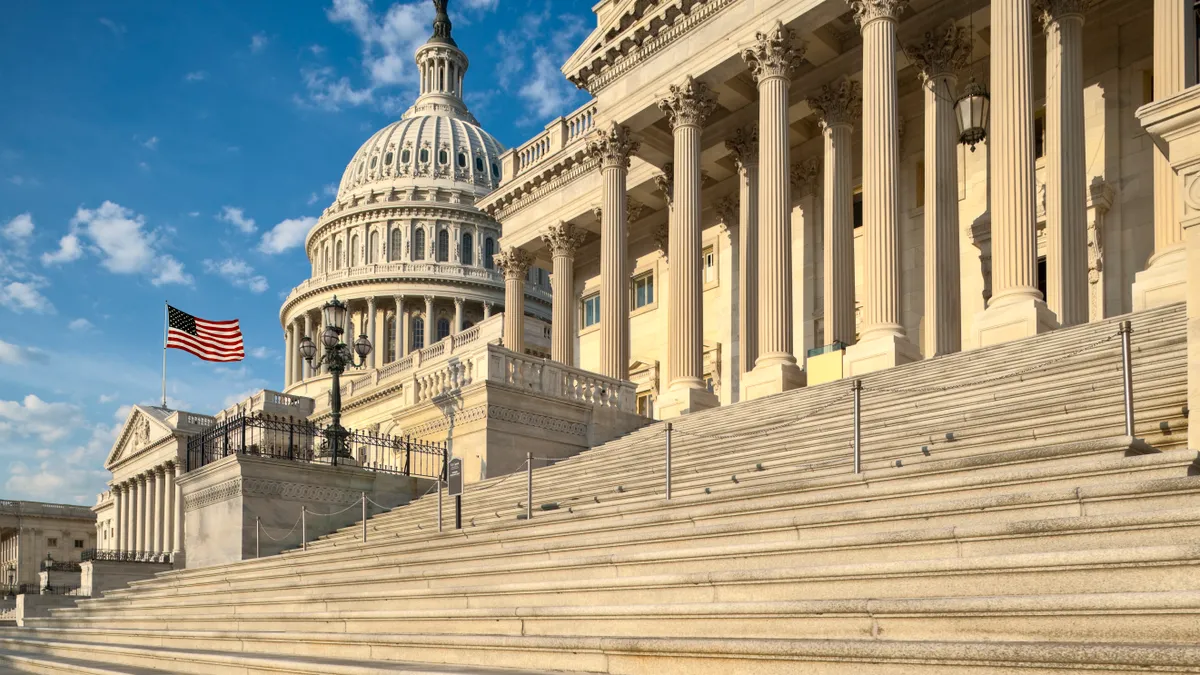Sen. Joe Manchin, D-W.Va., aims to bring bipartisan permitting reform legislation to the Senate floor for a vote by July 31, the tentative start of the chamber’s summer recess, he said Thursday.
“That's pretty aggressive. We're going to get it done,” Manchin, chairman of the Senate Energy and Natural Resources Committee, said during a hearing on permitting reform. “We can get together much quicker if we’re all in this, and I think we are. We want this done and everybody wants it done.”
Any permitting reforms must apply equally to all energy sources, said Wyoming Sen. John Barrasso, the energy committee’s top Republican.
Several permitting reform bills have been introduced in the Senate.
They include Manchin’s Building American Energy Security Act, which is similar to a bill he introduced last year, and the SPUR Act and RESTART Act offered separately by Barrasso and Sen. Shelley Moore Capito, R-W.Va., ranking member of the Senate Environment and Public Works Committee. Sen. Tom Carper, D-Del., chairman of the environment committee, plans to introduce a permitting bill, possibly this month. Also, the House in March passed permitting reform legislation that was included in a debt limit bill.
“We all need to sit down and negotiate in good faith – putting politics aside – to craft the Bipartisan Permitting Reform Bill,” Manchin said, noting he plans to hold sector-specific energy permitting hearings to inform that effort.
White House senior clean energy advisor John Podesta on Wednesday said the Biden administration supports Manchin’s bill.
However, there are “yawning gaps” between Republican and Democratic permitting reform priorities, ClearView Energy Partners said in a client note Wednesday.
“We do not observe many areas of overlap, and even fewer areas of real consensus between the partisan proposals,” the research firm said. “We think that Podesta’s speech clearly indicates that permitting reform is on the table, but agreeing to terms from such vastly different starting points remains a challenge.”
Pioneer Public Affairs, a consulting firm, echoed ClearView’s analysis.
“There is substantial – if not overwhelming – agreement that some changes to various permitting processes are needed; however, there is no consensus or general agreement on where to focus to make the biggest difference,” Pioneer said in a memo Wednesday.
Possible elements for a final package include time limits on environmental reviews, the firm said, noting that most proposals include a two-year deadline for complicated reviews and a one-year limit for simpler ones.
There could also be restrictions on litigation, such as a statute of limitations and timelines for judicial review of permitting decisions, Pioneer said. A final bill could also streamline and speed up high-priority permitting reviews, such as expansion of projects eligible for the FAST-41 environmental review and authorization process and improved interagency coordination, according to the memo.
Measures that are unlikely to pass muster include rollbacks to the Inflation Reduction Act, major restrictions to environmental and public health laws or limits on considering climate change and greenhouse gasses in permitting, the firm said.
Any permitting legislation needs to include deadlines for reviewing proposed projects, limits on how long litigation can take and “one-stop shopping” for agency reviews, said Sen. Angus King, I-Maine.
“In order to achieve our environmental goals, we have to build things,” he said. “You cannot love EVs and hate lithium mines.”
There is general agreement that permitting reform should include time limits, ending duplicative environmental reviews and a process for paying for projects, particularly transmission lines, Jason Grumet, CEO of the American Clean Power Association, told the committee.
“You could turn the dials too far on any one of those issues,” creating potential opposition to reform legislation, he noted.
Grumet urged the committee to include measures in any legislation that could spur interregional transmission.
Congress could cut the federal permitting process for “national interest” transmission projects from about a decade to less than three years, partly by having state and Federal Energy Regulation Commission reviews at the same time, he said.
Also, Congress should require grid operators to jointly plan interregional transmission plans using compatible benefits metrics and study approaches and a single cost allocation methodology, according to his testimony.
When assessing a proposed project’s benefits, grid planners should consider their economic, resilience and reliability values, Grumet said.
Sens. Maria Cantwell, D-Wash., and Steve Daines, R-Mont., said they want a hydroelectric bill they introduced Wednesday to be included in any permitting legislation. The bill would streamline the hydroelectric permitting and licensing process, increase tribal engagement and oversight and speed low-impact projects.






















